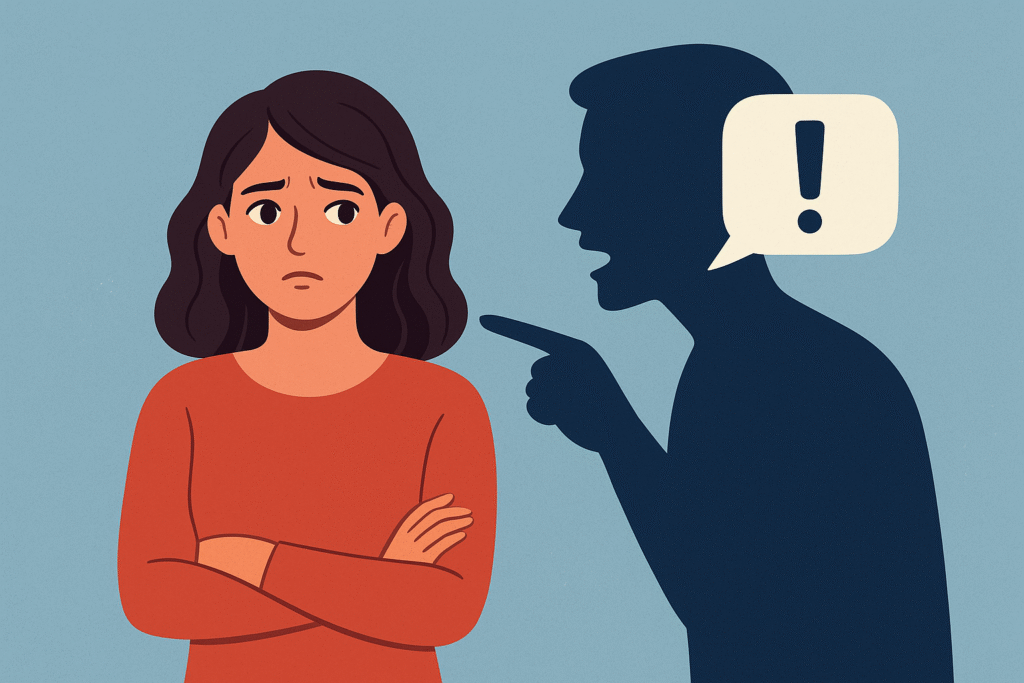Manipulation in relationships is one of the most damaging — yet most misunderstood — forms of emotional influence. Whether you’re dating online or offline, emotional manipulation can slowly undermine your confidence, distort your sense of reality, and keep you trapped in a toxic cycle.
Understanding the signs of manipulation is essential if you want to build healthy romantic connections. This article will help you recognize manipulative behaviors, respond to them, and protect your emotional well-being.
If you’re currently exploring dating or building new relationships, you may also want to read:
👉 How to Overcome Fear of Online Dating
👉 Emotional Availability: How to Recognize If Someone Is Ready for Love
🔍 What Is Manipulation in Relationships?
Manipulation is a form of psychological control where one partner uses emotional pressure, guilt, or fear to influence the other. The manipulator often disguises their behavior as care, concern, or “love,” making it difficult to recognize.
Manipulation can happen both in real-life relationships and online dating.
For example, on dating platforms, a manipulator may use sweet talk, guilt, or emotional pressure to gain attention, money, or power.
Common Signs You Might Be Manipulated
✔️ You feel guilty most of the time — often without a clear reason
✔️ You walk on eggshells, afraid to upset your partner
✔️ Your feelings are dismissed, minimized, or mocked
✔️ Your partner uses emotional blackmail to get what they want
✔️ Your partner avoids responsibility and makes everything your fault
✔️ You feel drained, confused, or insecure after interactions
⚠️ Most Common Types of Manipulation
1️⃣ Guilt-Tripping
This is one of the easiest ways for a manipulator to control you.
Examples of guilt-tripping:
- “If you really loved me, you’d do it.”
- “I sacrificed so much for you.”
- “I guess I’m just not important to you.”
Why it’s dangerous:
It makes you feel responsible for your partner’s emotions.
How to respond:
Set boundaries and remind yourself: love is not proven through guilt.
2️⃣ Gaslighting
Gaslighting is a psychological manipulation tactic that makes you question your own reality, memory, or judgment.
Classic gaslighting phrases:
- “You’re imagining things.”
- “You’re too sensitive.”
- “That never happened.”
- “Why are you making drama?”
Why it’s dangerous:
It destroys self-trust and creates emotional dependency.
How to respond:
- Write down conversations or events
- Talk to a friend to get perspective
- Trust your instincts — not their version of events
👉 Want to understand emotional control better? Read:
Flirting as a Way to Boost Self-Esteem (добавишь правильную ссылку после публикации)
3️⃣ Threats & Ultimatums
Manipulators use threats (emotional or practical) to force compliance.
Examples:
- “If you don’t stop talking to him, we’re done.”
- “Do what I want, or I’ll leave.”
- “If you don’t help me, something bad will happen.”
Why it’s dangerous:
It creates fear-driven obedience rather than genuine connection.
How to respond:
Remember: real love never requires fear to function.
4️⃣ Silent Treatment
Also known as emotional withdrawal or “freezing you out.”
Signs of silent treatment:
- Ignoring messages
- Withdrawing affection
- Refusing to talk without explanation
- Acting cold until you apologize for something you didn’t do
Why it’s dangerous:
It punishes you emotionally and makes you desperate for their attention.
How to respond:
Explain once that silent treatment is unhealthy — then step back.
💡 How to Protect Yourself From Manipulation
✔️ 1. Set Clear Boundaries
Boundaries are not selfish — they are essential for emotional health.
If something doesn’t feel right, it probably isn’t.
✔️ 2. Watch for Repeated Patterns
Everyone makes mistakes, but manipulation is consistent, not accidental.
Document recurring behaviors.
Look at the pattern, not the apology.
✔️ 3. Communicate Openly
Say how certain behaviors make you feel. Healthy partners will respond with care.
Manipulators will respond with guilt, blame, or anger.
✔️ 4. Seek Support
Talk to trusted friends, a psychologist, or relationship coach.
Sometimes an outside perspective helps break emotional confusion.
For more guidance, check:
👉 Best Dating Apps in 2025
🧭 How This Knowledge Helps in Dating (Online & Offline)
Whether you’re meeting women in real life or using dating apps, understanding manipulation protects you from:
- catfishing
- love bombing
- scammers who play emotional games
- narcissistic dating tactics
- unhealthy psychological dependence
Healthy relationships are built on trust, emotional safety, and mutual respect — not guilt or fear.
⭐ Final Thoughts
Recognizing manipulation early is crucial for emotional well-being and long-term happiness.
If your partner makes you doubt yourself, feel guilty, or walk on eggshells — these are not signs of love, but signs of control.
A healthy relationship should feel supportive, peaceful, and emotionally safe.
You deserve a relationship built on mutual respect — not manipulation.

